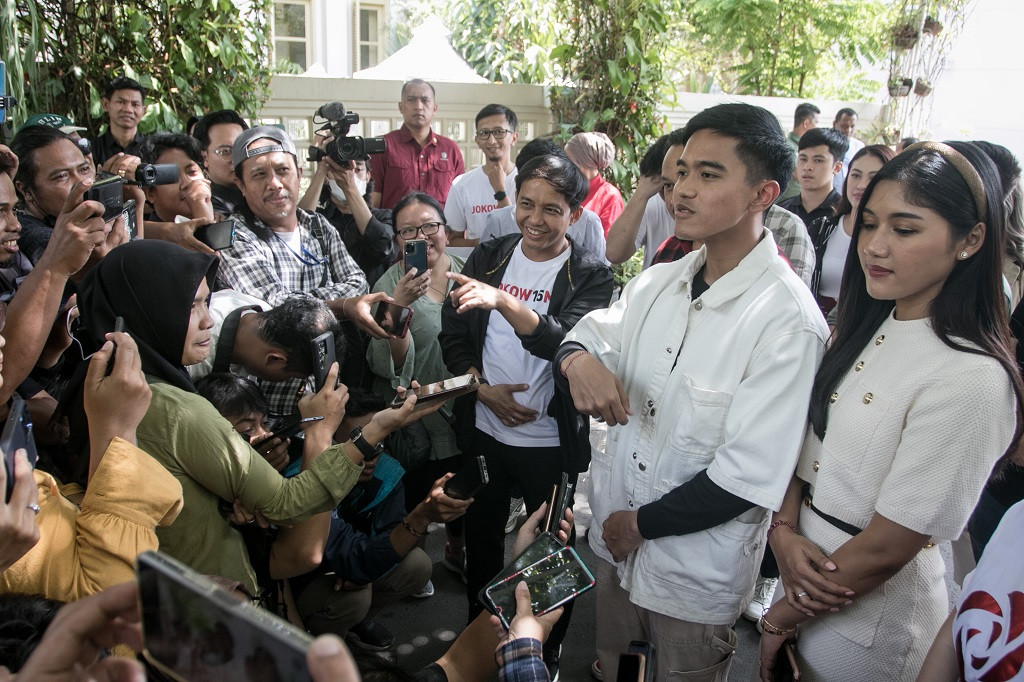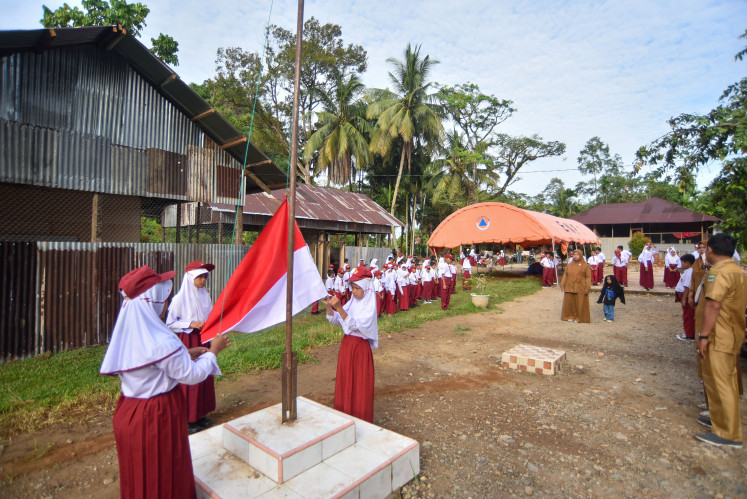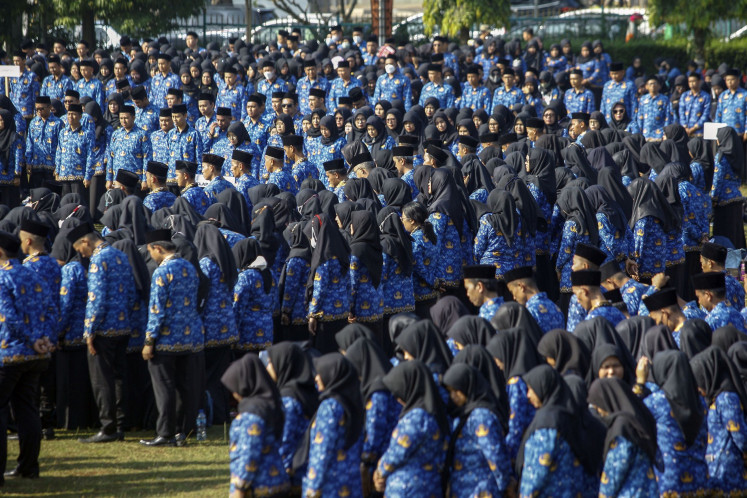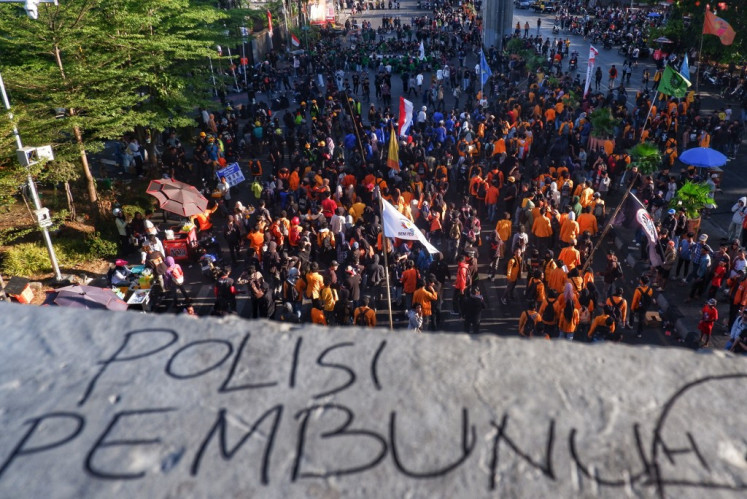Popular Reads
Top Results
Can't find what you're looking for?
View all search resultsPopular Reads
Top Results
Can't find what you're looking for?
View all search resultsPSI’s gambit with Kaesang
The PSI has gotten a lot of flak as one of the country's youngest political parties, which is led by youths and claims to represent young voters, but its latest move to elect as its chairman Kaesang, a political novice and the President's youngest son, shows it has a ways to go to reach maturity, both politically and as an institution.
Change text size
Gift Premium Articles
to Anyone

Politics is not child’s play. The leadership of the Indonesian Solidarity Party (PSI), the only political party claiming to represent the youth, millennials and now Gen-Zers, is no stranger to that adage.
As one of the youngest political parties that is also led by young people, the PSI has been inevitably subject to bullying by bigger, older parties.
In the last few months, the party founded by politician and businessman Jeffri Geovanie engaged in a war of words with the Indonesian Democratic Party of Struggle (PDI-P), the country’s largest and oldest nationalist party, its main rival in the battle for the nationalist voting bloc.
The point of contention between the PDI-P and the PSI was the latter’s decision to nominate then-Central Java governor and PDI-P politician Ganjar Pranowo as its presidential candidate. The PSI was thus accused of being “disrespectful” by publicly endorsing Ganjar without first asking the PDI-P. In its defense, the young party said it had tried reaching out to the PDI-P, but that established party did not take it seriously.
The last straw for the PSI was when the presumptive PDI-P nominee jokingly referred to the national soccer body in replying, “What? The PSSI?” to journalists’ questions about the party’s support for him.
The PSI then retracted its support for Ganjar and leaned toward the Gerindra Party in an attempt to show the PDI-P leadership that it was the “partai bocil ingusan” (party of snotty-nosed kids) and should be taken seriously.

But the PSI should know that its problem is not that other parties look down on it. The problem is its failure to produce its own political poster boy that can bring in votes: the same problem that plagues the majority of political parties, including the Golkar Party, arguably the party with the most electoral experience.
To date, only the PDI-P has managed to produce popular and seasoned politicians to contest next year’s elections. Joko “Jokowi” Widodo has been a PDI-P member since he ran in 2005 for Surakarta mayor in Central Java, while PDI-P member Ganjar was a lawmaker before he won the Central Java governorship in 2013. It was only natural that the ruling party was unhappy when the PSI “poached” PDI-P members for its electoral ambitions.
Political idealism aside, the primary reason the PSI nominated Ganjar so early was that it was hoping to ride his coattails in the legislative election, like the NasDem Party did with former Jakarta governor Anies Baswedan.
This explains why the PSI elected as is new chairman Kaesang Pangarep, the youngest son of President Jokowi, just three days after granting him party membership.
We should give the 28-year-old political novice the benefit of the doubt that he has the capacity to lead the PSI, which can say whatever it wants to justify its baffling leadership decision to voters. Nevertheless, it is clear that this decision was primarily driven by the party’s determination to get a seat at the House of Representatives in 2024, perhaps the only indicator for Kaesang’s performance as PSI chair.
The key issue with the PSI’s gambit is that it is not based on meritocracy, given that the party actually has several up-and-coming young leaders who have been members for much longer, such as Raja Juli Antoni, the deputy minister for agrarian affairs and spatial planning, and Faldo Maldini, a spokesman of the State Secretariat.
The issue is therefore not about Kaesang’s age or his privilege as a member of the First Family, but his lack of experience and more importantly, the flawed political process that could only weaken the PSI as an institution.
As a democracy, we need political parties. The PSI, regardless of its shortcomings, is an important institution that we hope will improve as it matures. To do this, it must work from the ground up and resist the corrosive temptation of political opportunism.










